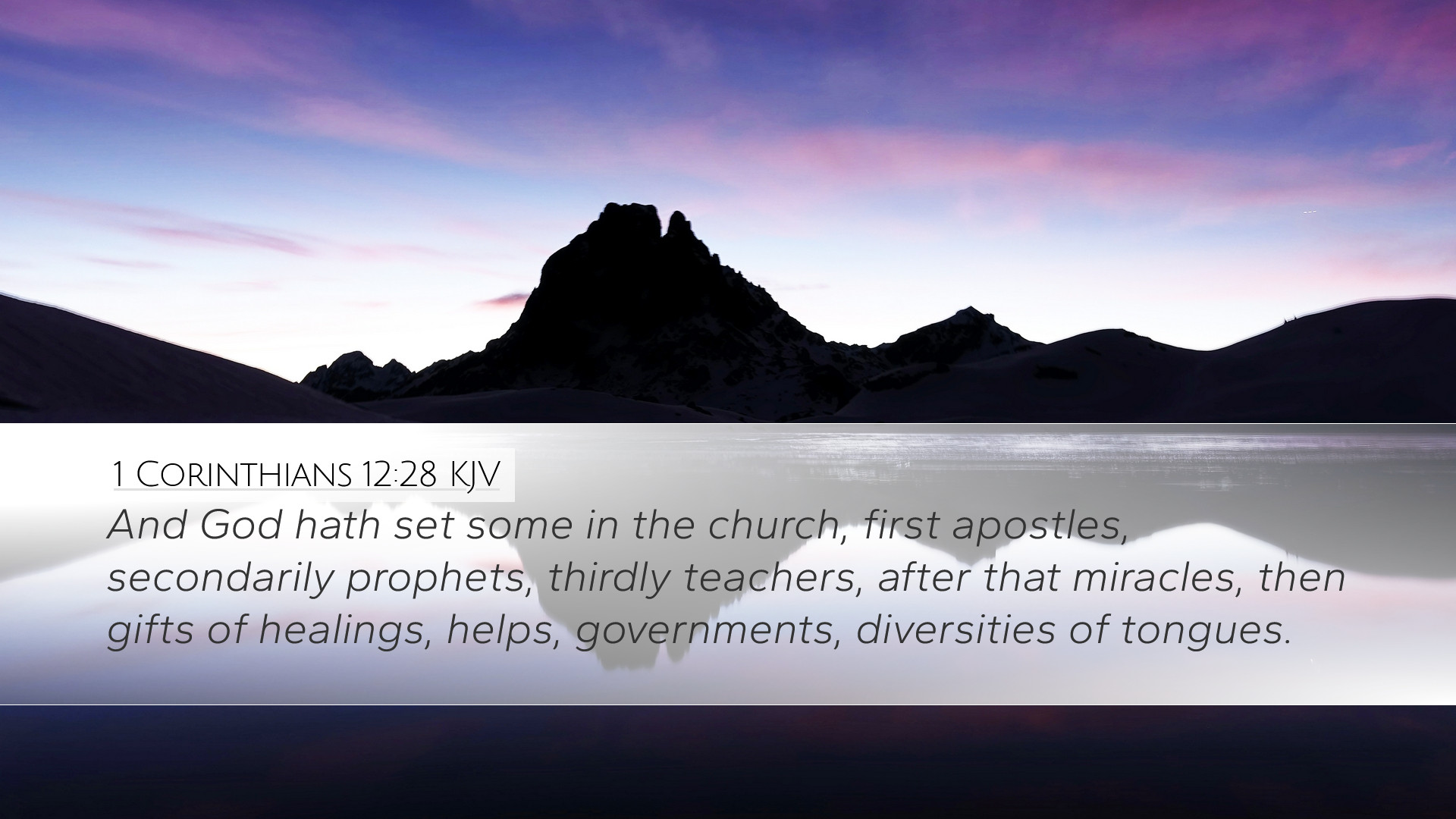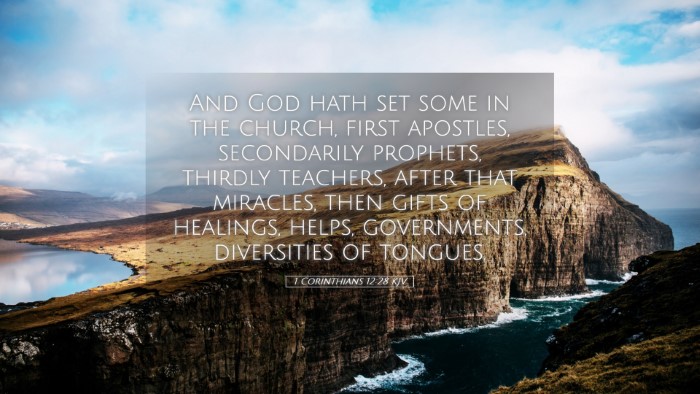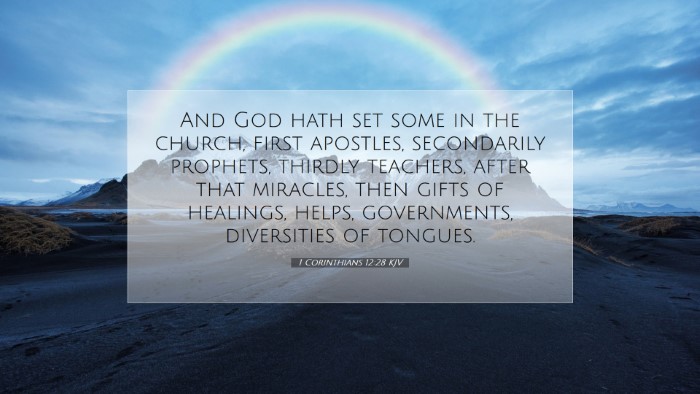Commentary on 1 Corinthians 12:28
Verse: 1 Corinthians 12:28 - "And God hath set some in the church, first apostles, secondarily prophets, thirdly teachers, after that miracles, then gifts of healings, helps, governments, diversities of tongues."
Introduction
This verse highlights the divine order and diversity of spiritual gifts within the church. Paul emphasizes that God, in His sovereignty, has appointed various roles for the edification and functioning of the church. This commentary seeks to draw insights from several public domain sources to elucidate the significance of each role mentioned.
The Divine Setting of Church Offices
Matthew Henry emphasizes that these roles are not arbitrarily chosen but are divinely instituted by God. He argues that "God hath set" signifies the authority of God in establishing His church and its leadership. Each position is essential for the proper functioning of the body of Christ.
Understanding the Roles
-
Apostles:
Henry notes that apostles were foundational figures in the early church, chosen by Christ Himself. They were tasked with spreading the gospel and establishing churches, thus laying the groundwork for the Christian faith.
-
Prophets:
Albert Barnes highlights the role of prophets as those who were inspired to communicate God's will to His people. They provided guidance, correction, and encouragement through divinely inspired messages.
-
Teachers:
According to Adam Clarke, teachers are essential for instructing the church in doctrine and practice. Their role is to equip believers with the knowledge necessary for spiritual growth and maturity.
The Manifestation of Miracles and Healings
The subsequent roles mentioned, such as miracles and gifts of healing, signify the active work of the Holy Spirit in the church. Henry posits that these gifts serve as a testament to the power of God and are vital for the encouragement of the faith.
Furthermore, Clarke suggests that while these gifts were prevalent in the apostolic age, their fundamental purpose was to authenticate the message of the gospel and validate the ministry of the apostles.
Helps and Governments
Paul's mention of "helps" and "governments" indicates a call for practical service and administration within the church. Barnes argues that helps refer to those who assist the ministry through various forms of benevolence, while governments pertain to leadership and organizational roles that maintain order.
Henry elaborates that those in governance are tasked with overseeing the spiritual and practical needs of the church, ensuring that it operates effectively as the body of Christ.
Diversities of Tongues
The diverse languages or "tongues" signify the multicultural nature of the church and the inclusivity of the gospel message. Clarke states that this gift was particularly significant in the context of the early church as it allowed the message of Christ to reach various peoples and nations.
Conclusion
This verse encapsulates the theology of spiritual gifts in the church, emphasizing that every member has a unique role ordained by God. The diversity of gifts serves not only to build up the church but also to reflect the unity of the body of Christ. As Paul illustrates the importance of each role, he invites believers to recognize their contributions to the greater mission of the church.
Understanding these roles fosters appreciation for the work of the Holy Spirit in organizing and empowering the church, encourages unity amidst diversity, and challenges believers to actively participate in their God-given callings.


